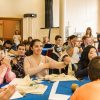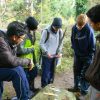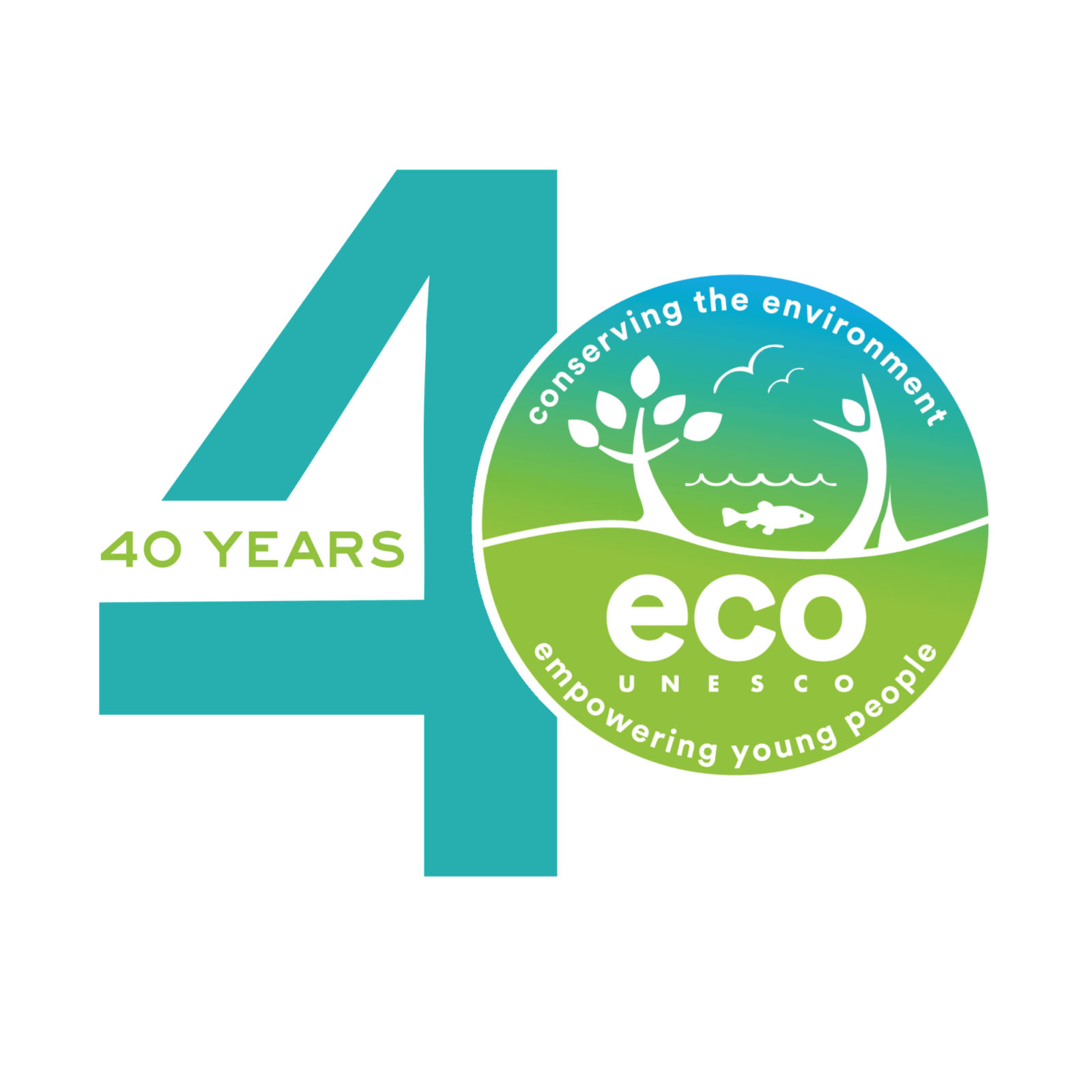Youth for Sustainable Development
If you have any questions or want more information contact the Youth for Sustainable Development team at ysd-officer@ecounesco.ie
Join ECO-UNESCO as an Inspirational Volunteer!
Are you passionate about the environment and eager to make a real impact? ECO-UNESCO is looking for enthusiastic volunteers aged 18+ to join our after-school Youth for Sustainable Development Programme. This is a unique opportunity to gain valuable work experience while enabling young people to think critically and take action on issues that are impacting their daily lives.
Key Responsibilities:
- Assist with the development of an ECO-UNESCO Club in your area
- Assist with the delivery and facilitation of ECO-UNESCO’s Youth for Sustainable Development programme.
- The ability to be creative, fun and understand the point of view of young people and their ideas on the environment and sustainable development
If you have any questions or want more information contact the Youth for Sustainable Development team at ysd-officer@ecounesco.ie
Objectives of the programme

To empower young people

To give young people a voice

To create a safe space for young people

To take positive action for change
Youth for Sustainable Development Programme Journey
Weekly Programme
Action Project
QQI Level 5
The Year of Action
Youth Leader
The Youth Advisory Committee
Let’s start with the Weekly Programme
The weekly programme is the participant’s first step on their ECO journey. During the programme participants will attend weekly workshops. By the end, of the workshops participants should: Have an understanding of Sustainable Development from local to global, be familiar with the Sustainable Development goals, be introduced to the idea of Peer Education, be introduced to the idea of active and global citizenship. Alongside the programme participants will be encouraged to attend ECO events such as the Youth Summit, excursions and rallies. By attending these events, participants immerse themselves in education in the environment, become involved in active citizenship, and see the changes they can make at a local and global level.
Action Project
Towards the end of the programme, participants will begin to think about their Action Project. The overall aim of the project is to empower young people to become active citizens, to build awareness of environmental and social issues in their locality and improve their community and local environment. The action project brings young people together, reinforces group work, and is an opportunity for them to immediately put the knowledge and skills gained in the workshops into action. ECO-UNESCO believes that the action project is an essential step in the journey towards youth empowerment. Throughout these months there will be events which take the Action Project as their focus including the five activities of the Youth Summit, ECO-Dens, and the Young Environmentalist Awards.
QQI Level 5
After the weekly programme, participants can choose to do a QQI Level 5 qualification in Peer Education. This course builds on the skills and knowledge that the young people have already gained from their participation in the YSD programme. The course will also support the participants to acquire a general knowledge of peer education for sustainable development, build confidence and gain planning, facilitation, research, communication and presentation skills. The course is 50 hours in total consisting of 37 input hours, and 13 work experience hours, for which their ongoing participation in the weekly meetings counts. The QQI Level 5 gives substantial knowledge and confidence to those participants who are interested in eventually becoming Young Leaders.
The Year of Action
The year of action is the participants second year in ECO-UNESCO Youth for Sustainable Development Programme. At this stage participants will be equipped through their knowledge of peer education and sustainable development to take a more active role in facilitation, while at the same time engaging and guiding participants who have just begun their ECO journey. During this year, participants are strongly encouraged to attend and participate in ECO events. They can also attend the Youth Summit activities and participate in the Young Environmentalist Awards.
Youth Leader
After two years as part of the ECO programme, participants can choose to become a Young Leader. Young Leaders take on a leadership role and co-facilitate the Youth for Sustainable Development Programme, and it is here where they can apply the skill acquired during their two-year journey at ECO. This stage is invaluable in providing participants with experience in leading youth groups.
The Youth Advisory Committee
The function of the YAC is as follows: to ensure that ECO-UNESCO is a youth-friendly service, to identify barriers and friendly, new creative ways of engaging with young people including those living in rural areas and LGBTI+ young people, to provide written and verbal responses into youth engagement activities and discussion topics, to evaluate programmes, services and activities when required, and to promote ECO-UNESCO by: demonstrating a positive representation of ECO-UNESCO and of young people in the community and to represent ECO-UNESCO at community and youth events meetings.
Why this programme is different?
- you learn about sustainable development in an informal, dynamic and safe learning environment
- you get to be immersed in discussions about issues that matter (environment, society, politics)
- the expression of your opinion on issues is encouraged
- you take action
- you learn to dialogue about environmental and political policy
- you have the opportunity to travel and represent ECO-UNESCO at national and inter-national events
- you can do a QQI Level 5 course in Peer Education
- you can use it towards your Gaisce Award
- you are given a platform at high-level events to express your views
- you go on trips to build friendships and further your environmental knowledge
- you make friends
- you are encouraged to be you!
